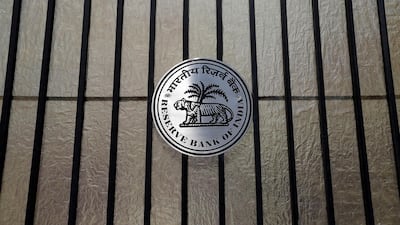The pick-up in India's economy has led to widespread expectations that interest rates will be left on hold at India's monetary policy meeting this week and beyond.
The Reserve Bank of India (RBI), the country’s central bank, is scheduled to announce its interest rate decision on Wednesday.
“As the RBI is likely to paint a more optimistic picture of the economy, with expectations of growth strengthening further and CPI [consumer price index] inflation slightly above its mid-point target of 4 per cent, we expect the policy to be interpreted as a hawkish hold,” says Sonal Varma, the chief India economist at Nomura.
The repo rate, a key interest rate in India, is currently at 6 per cent.
A rate cut is often made when economic growth is weak because cheaper lending can help to spur the economy by allowing businesses to borrow more money to expand, for example.
______________
Read more:
Where does India stand in the Paradise Papers saga?
An old hand fuels youngsters' entrepreneurial curiosity
UAE-India bilateral trade to grow by 6% per year, says official
______________
After slowing to a three-year low in the quarter between April and June, the latest figures have revealed that GDP growth rose to 6.3 per cent in the quarter to the end of September, which has raised confidence in the prospects for the Indian economy.
Reports have suggested that the Indian government is eager for the RBI to cut rates to spur the economy further.
“Rumours that members of the government are attempting to pressure the RBI to loosen monetary policy are nothing new, although continued efforts to undermine the central bank’s independence are worrying,” says Shilan Shah, the India economist at Capital Economics. The central bank has to balance the risks of inflation, which keeping rates on hold, rather than cutting, can help control.
Mr Shah says a recent rise in inflation – which has been driven by higher fuel and vegetable prices – means that interest rates are likely to stay on hold “well into next year”.
“In terms of the policy outlook, the consensus has shifted towards expectations of a prolonged rate hold, having anticipated further modest loosening until very recently,” he says.

